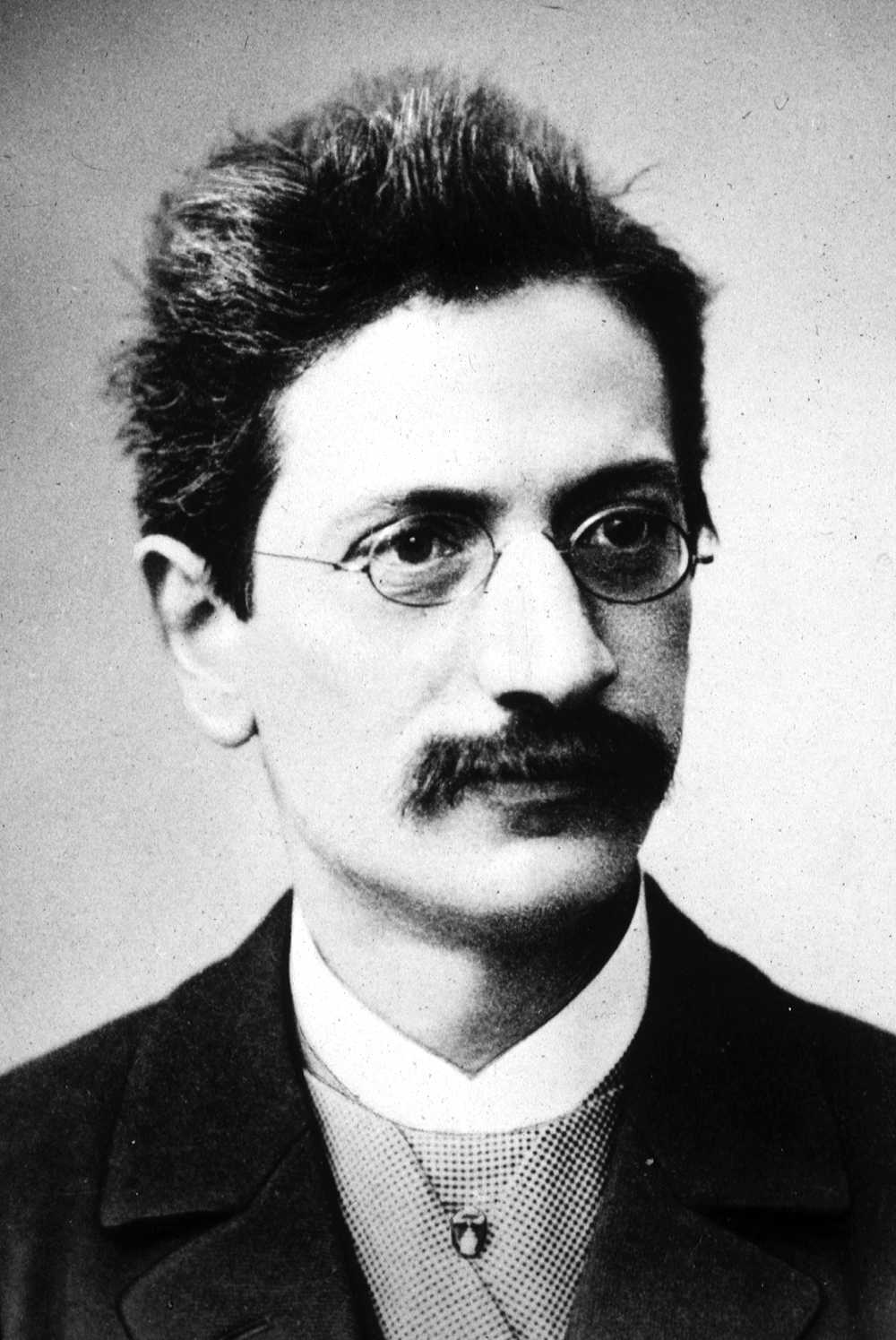
Adolf Hurwitz
Adolf Hurwitz (German: [ˈaːdɔlf ˈhʊʁvɪts]; 26 March 1859 – 18 November 1919) was a German mathematician who worked on algebra, analysis, geometry and number theory.
Adolf Hurwitz
26 March 1859
18 November 1919 (aged 60)
Early life[edit]
He was born in Hildesheim, then part of the Kingdom of Hanover, to a Jewish family and died in Zürich, in Switzerland. His father Salomon Hurwitz, a merchant, was not wealthy. Hurwitz's mother, Elise Wertheimer, died when he was three years old.[1] Family records indicate that he had siblings and cousins, but their names have yet to be confirmed except for an older brother, Julius, with whom he developed an arithmetical theory for complex continued fractions circa 1890.[2] Hurwitz entered the Realgymnasium Andreanum in Hildesheim in 1868. He was taught mathematics there by Hermann Schubert.[3] Schubert persuaded Hurwitz's father to allow him to attend university, and arranged for Hurwitz to study with Felix Klein at Munich.[3] Salomon Hurwitz could not afford to send his son to university, but his friend, Mr. Edwards, assisted financially.
Educational career[edit]
Hurwitz entered the University of Munich in 1877, aged 18. He spent one year there attending lectures by Klein, before spending the academic year 1877–1878 at the University of Berlin where he attended classes by Kummer, Weierstrass and Kronecker,[1] after which he returned to Munich.
In October 1880, Felix Klein moved to the University of Leipzig. Hurwitz followed him there, and became a doctoral student under Klein's direction, finishing a dissertation on elliptic modular functions in 1881. Following two years at the University of Göttingen, in 1884 he was invited to become an Extraordinary Professor at the Albertus Universität in Königsberg; there he encountered the young David Hilbert and Hermann Minkowski, on whom he had a major influence. Following the departure of Frobenius, Hurwitz took a chair at the Eidgenössische Polytechnikum Zürich (today the ETH Zürich) in 1892 (having to turn down a position at Göttingen shortly after[1]), and remained there for the rest of his life.
Throughout his time in Zürich, Hurwitz was in continual ill health, which had been originally caused when he contracted typhoid whilst a student in Munich. He had severe migraines, and then in 1905, his kidneys became diseased and he had one removed.
Family[edit]
In 1884, whilst at Königsberg, Hurwitz met and married Ida Samuel, the daughter of a professor in the faculty of medicine. They had three children.